STB & RESPONSIBLE TOURISM
Home – About Us
Be a part of sustaining the earth for the future
About Responsible Tourism
Responsible tourism is also about making a positive impact on the places that we visit – by being responsible for the environment, people, as well as tangible and intangible heritage. It means creating awareness and helping in the conservation of old monuments, the forest, water, and other resources belonging to a destination.
Sarawak Tourism Board (STB) has taken various steps to create a sustainable tourism industry since 2011.
Our tourism players adapt eco-friendly practices in their tourism products, such as encouraging bicycle-rides in rural areas or enjoy bird-watching in Sarawak’s lush rainforests. We promote homestays, encourage consumption of local food, and highlight local handicrafts and arts.
Such community-based tourism can be found in areas such as Nanga Sumpa in Batang Ai where travellers can gain an insight into the lifestyle of the various tribes of Sarawak who have lived in the remote areas for generations. These efforts can generate economy for its residents, especially those from lower-income groups. Sarawak’s biggest and renowned orangutan rehabilitation centre, Semenggoh Wildlife Rehabilitation Centre which is only 20km from Kuching City, is a sanctuary for the conservation of the orangutans in their natural habitat.
While tourism players shift the way it operates, it is also vital that travellers take on a more responsible mindset.
Travellers are encouraged to research the culture and practices before travelling. The world and its people are diverse and fascinating, and it is a privilege to experience different cultures and religions. Tourists can learn local customs, traditions and pick up the local language.
When it comes to eating, finding a place to stay and buying souvenirs, choosing where to spend money can have a massive impact on the community. By having dinner at a family restaurant, staying in a family-run guest house or purchasing a trinket from a street vendor, travellers are helping inject money directly into the local economy.
Besides creating a more authentic travel experience, these practices also help locals create a better life for themselves.
When it comes to the footprint left behind, travellers must endeavour to conserving energy and water, cutting back on the consumption of plastic water bottles and taking public transport whenever possible.
All in all, responsible tourism must no longer be a niche part of tourism but the new norm for every part of our sector. That means an opportunity to build back better and create and industry that is more resilient.
RESPONSIBLE TOURISM
Agenda
The implementation of Responsible Tourism is in conjunction with the Visit Sarawak Campaign’s focus on Experiential and Responsible Tourism. As per World Tourism Organization, 2004, definition, responsible tourism is any form of tourism that can be consumed more responsibly. Responsible Tourism, which focuses on 3Es: ENVIRONMENT, EMPOWERMENT & ECONOMIC VIABILITY, requires that operators, hoteliers, governments, local people and tourists take responsibility, take action to make tourism more sustainable. Responsible Tourism is tourism which:
Aligned with the Post Covid Development Strategy (PCDS) 2030 and Sustainable Development Goals (SDG), the Sarawak Tourism Board (STB) advocates for Responsible Tourism by implementing initiatives with various stakeholders. By focusing on the 3E’s: Environment, Empowerment, and Economic Viability, Responsible Tourism in Sarawak requires operators, hoteliers, government organizations, local people, and tourists to work together to make tourism more sustainable.
Sarawak Tourism Board has been recognised for advocating Responsible Tourism. The awards are “Destination Building Back Better Post Covid STB, Virtual Rainforest World Music Festival and Borneo Jazz” for WTM- World Responsible Tourism Awards 2021, Sustainability and Social Responsibility Category for PATA Gold Awards 2022 and Sustainability Award- Sarawak Rainforest World Music Festival: A compelling comeback story of sustainability” (Gold Award) for Malaysia Public Relations Awards (MPRA) 2023.
Minimises negative social, economic and environmental impacts
Generates greater economic benefits for local people and enhances the well-being of host communities
Improves working conditions and access to the industry involves local people in decisions that affect their lives and life changes
Makes positive contributions to the conservation of natural and cultural heritage embracing diversity
Provides more enjoyable experiences for tourists through more meaningful connections with local people, and a greater understanding of local cultural, social and environmental issues
Provides access for physically challenged people
Is culturally sensitive, encourages respect between tourists and hosts, and builds local pride and confidence

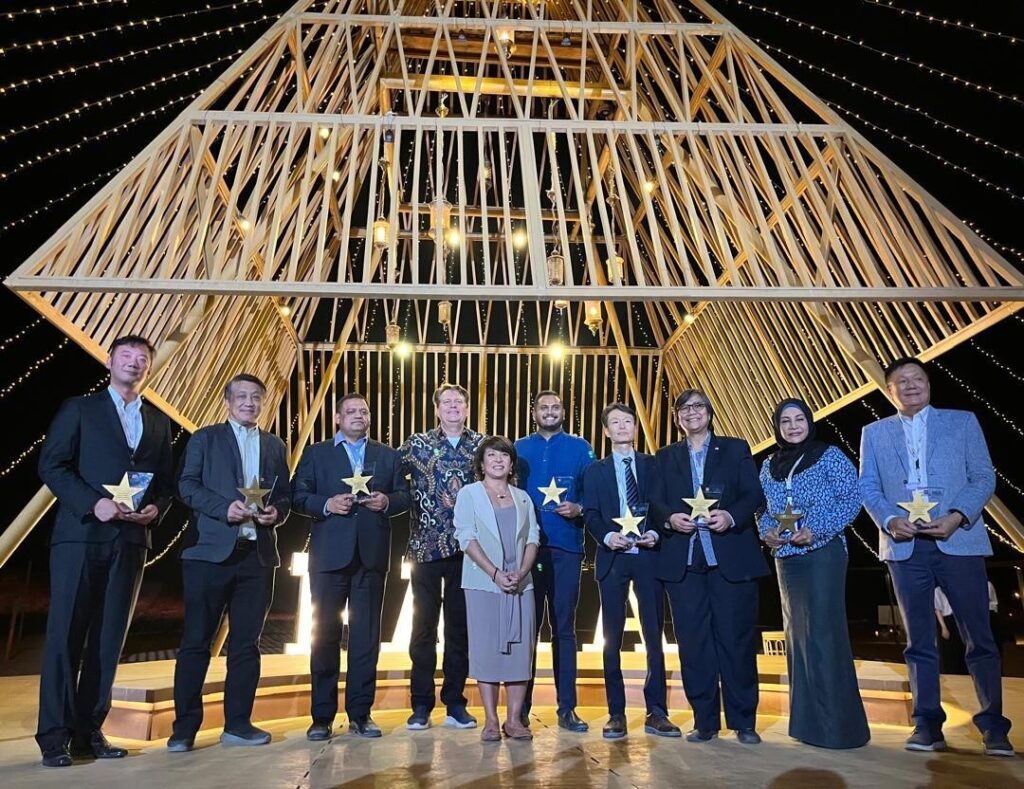
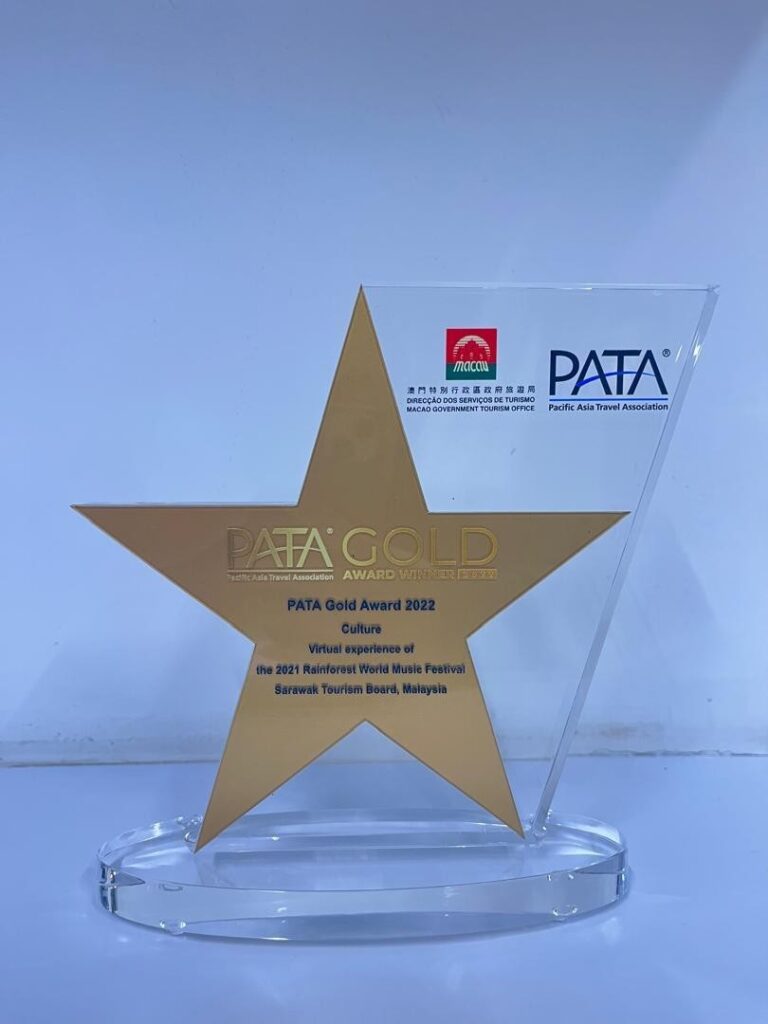
PATA Gold Awards 2022
Sustainability and Social Responsibility Category
As an organisation member of UNWTO and PATA, STB continues to embrace the journey of advocating Responsible Tourism by implementing various initiatives which focus on five (5) Sustainable Development Goals as pillars.
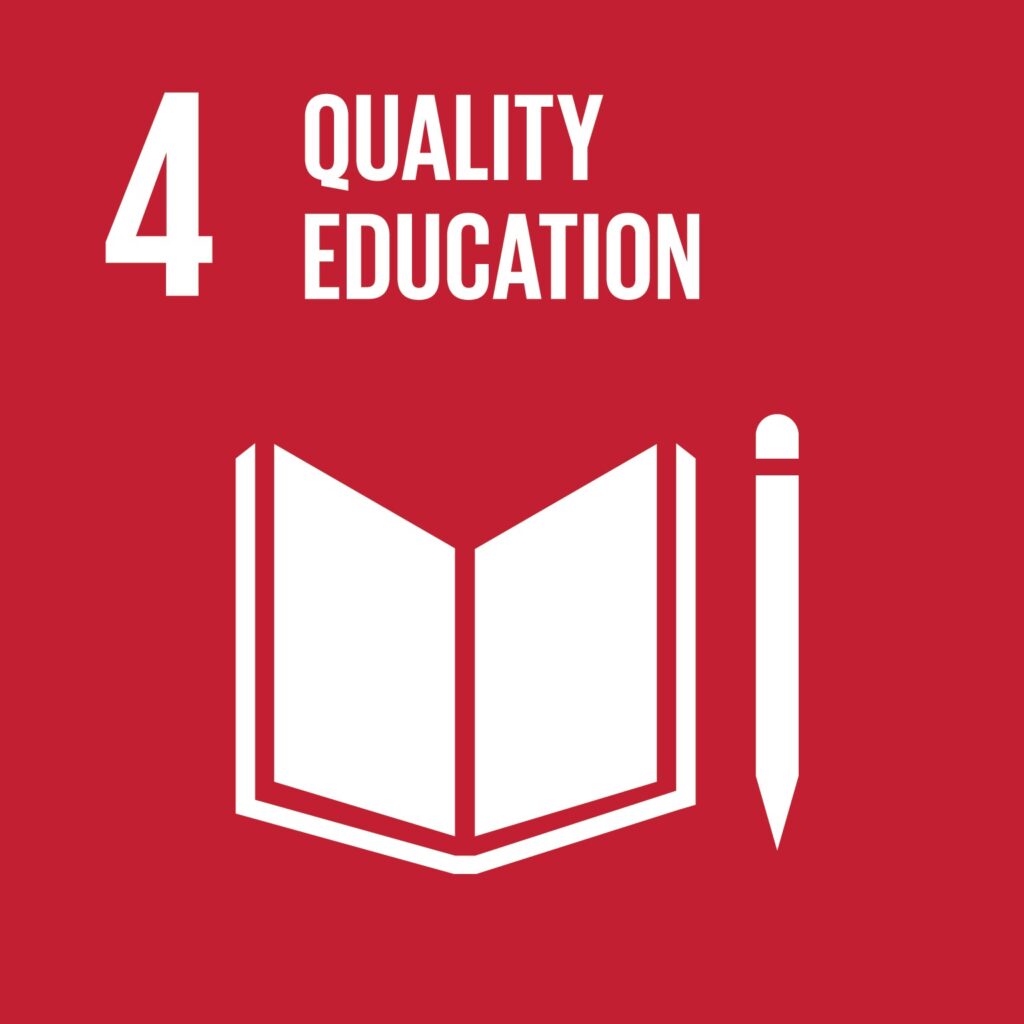

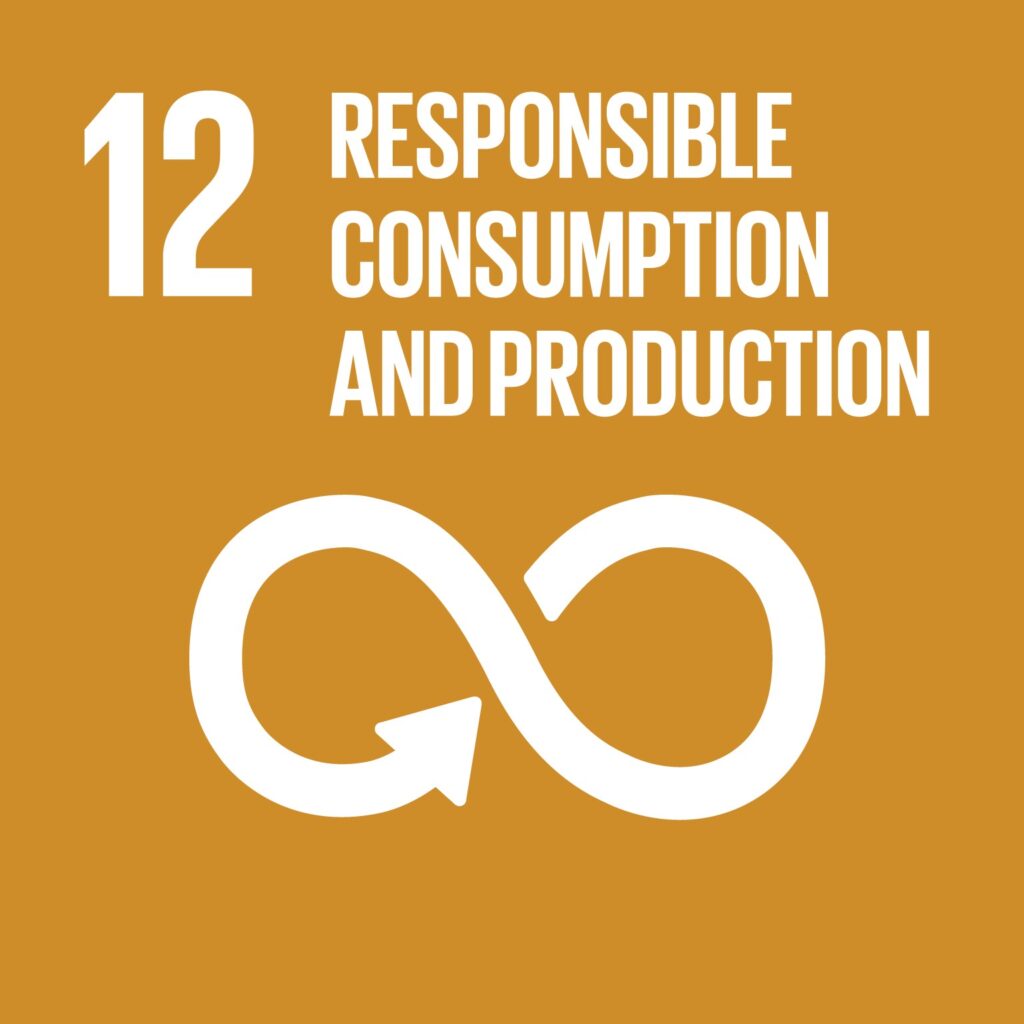

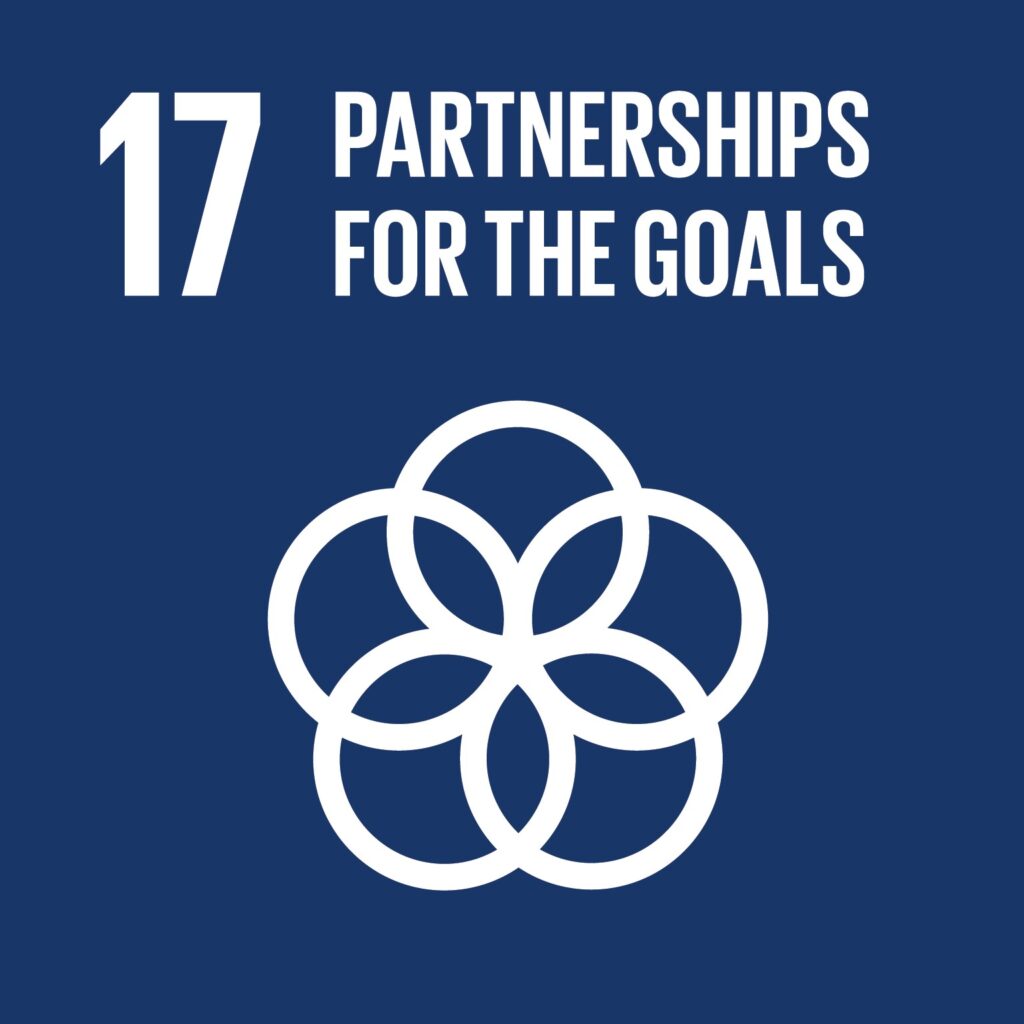
OUR JOURNEY
STB's Responsible Tourism Journey
EcoGreen Planet Tree Planting 2024
EcoGreen Planet Tree Planting 2024
Greening Initiative at RWMF
Greening Initiative at RWMF
Homestay Revisit Programme for Recycling and Upcycling Training
Homestay Revisit Programme for Recycling
and Upcycling Training
Homestay Revisit Programme for Recycling and Upcycling Training
Homestay Revisit Programme for Recycling and
Upcycling Training
EcoGreen Planet Tree Planting Programme
EcoGreen Planet Tree Planting Programme
Homestay programme
Homestay programme
▪ Waste Management
▪ Hygiene Kit
Homestay programme
Homestay programme
▪ Waste Management
▪ Hygiene Kit


